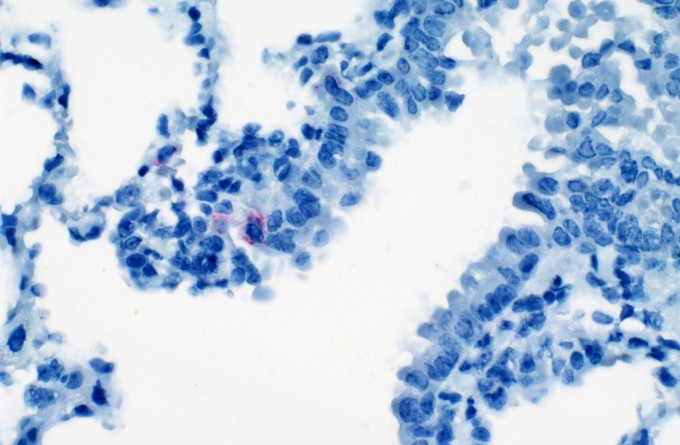With an established track record in immunology, vaccine design and bringing innovative new therapies to clinical trial, the Malaghan Institute has played a key role in New Zealand’s COVID-19 response and future pandemic preparedness.

By locking down its international borders in March 2020 during the early stages of the global COVID-19 pandemic, New Zealand bought itself time to develop and implement a national COVID-19 vaccine programme, at a time when no COVID-19 vaccines yet existed.
Together with key partners, the Malaghan Institute pushed to ensure that New Zealand and the Pacific region could access an effective vaccine at the earliest opportunity. New Zealand needed to assess the best vaccine options internationally, progress vaccine development with leading research institutions, government, and industry, build capacity for vaccine production in New Zealand, and develop a plan for the vaccine rollout.
In 2020, Vaccine Alliance Aotearoa New Zealand – Ohu Kaupare Huaketo (VAANZ) was established as part of the Government’s COVID-19 vaccine strategy, comprising the Malaghan Institute of Medical Research, the University of Otago and Victoria University of Wellington, as well as a number of local and international collaborators.
VAANZ was tasked with rapidly progressing New Zealand’s capability and capacity to develop and manufacture a COVID-19 vaccine and to lay the foundation for New Zealand’s response to future vaccine development, production and supply by supporting:
- vaccine design and development capability
- vaccine manufacturing capability and capacity
- the knowledge and capability to assess efficacy and potential of global developments in a New Zealand context
- links with international vaccine research organisations.
In doing so, VAANZ has built a vaccine development engine that strengthens New Zealand’s ability to protect against future infectious disease.
NZ-made COVID vaccine
VAANZ has designed and manufactured a novel COVID-19 vaccine candidate – Kiwi Vax – that is safe and effective in preclinical models and was developed at a fraction of the cost of commercially-developed vaccines.
Kiwi Vax is a spike protein booster vaccine built on traditional vaccine technology. With philanthropic funding, the Malaghan Institute plans to take this through to a phase I safety clinical trial in humans in 2024.
In parallel, the VAANZ programme has laid the groundwork for mRNA vaccine development in New Zealand, through developing a COVID-19 mRNA vaccine for local manufacture and securing key technology platforms to allow for the production and encapsulation of RNA nanomedicines in lipid nanoparticles.
Clinical study into Pfizer vaccine
VAANZ has also been undertaking a clinical study – ‘Ka Mātau, Ka Ora' (from knowledge comes wellbeing) – into the Pfizer-BioNTech vaccine, to better understand how New Zealanders’ immune systems respond to the vaccine, particularly in populations likely at higher risk from COVID-19, such as Māori, Pasifika and the elderly. In April 2022 it published initial results showing a strong immune response to the vaccine across New Zealanders.
In December 2022 VAANZ shared its latest results, which were published in Vaccine in July 2023, demonstrating the importance of a booster vaccination on immunity to SARS-CoV-2 Omicron variant infections.
Related News

Malaghan and National Institutes of Health research receives prestigious award
5 March 2024

Scientists identify interferon-gamma as potential SARS-CoV-2 antiviral
13 December 2023

New research suggests hookworms could offer protection from severe Covid symptoms
14 August 2023

Kiwi-made Covid-19 booster vaccine offers 100% protection in preclinical study
3 March 2023

In Focus: RNA technology tackling New Zealand specific problems
8 February 2023

Clinical study shows booster needed to protect against Omicron
22 December 2022
Get in touch
For more information about our vaccine development work contact:
Professor Kjesten Wiig | Director Strategic Partnerships | [email protected]
